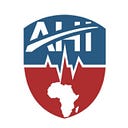Member-only story
What role does the diaspora cover in the development of the African Continent?
By Sellma Mahi, written February 2021
Africa is the second-largest Continent in the world, with 55 countries; it covers an area of more than 30 million km2(1) (larger than twice the size of the moon) and is deemed the cradle of the humankind.
Africa is rich in natural resources; the World Bank has estimated large pools of water resources and over 200 million hectares of unused but potentially arable land, particularly in sub-Saharan Africa. Africa also has the largest resource of minerals, among these: 90 % of world’s cobalt, 50 % gold, 30 % uranium, 55 % of diamond reserves, and 50% of phosphates. African citizens recognise this and have put in place measures to develop the Continent’s vast potential. In fact, economic growth has accelerated in recent years across many African countries, including in agricultural development, food security, health and education (2).
Although the enormous steps forward governments have taken to realise the Continent’s potential, the lack of peace, security and firm infrastructure still pose a significant obstacle to its development (3). Despite this, continental organisations and the United Nations are making all efforts to advance sustainable growth, but whilst investment in development assistance is critical, African nations won’t depend forever on external help to drive the economy. No nation, no people, have ever experienced growth that sprang solely from external…
